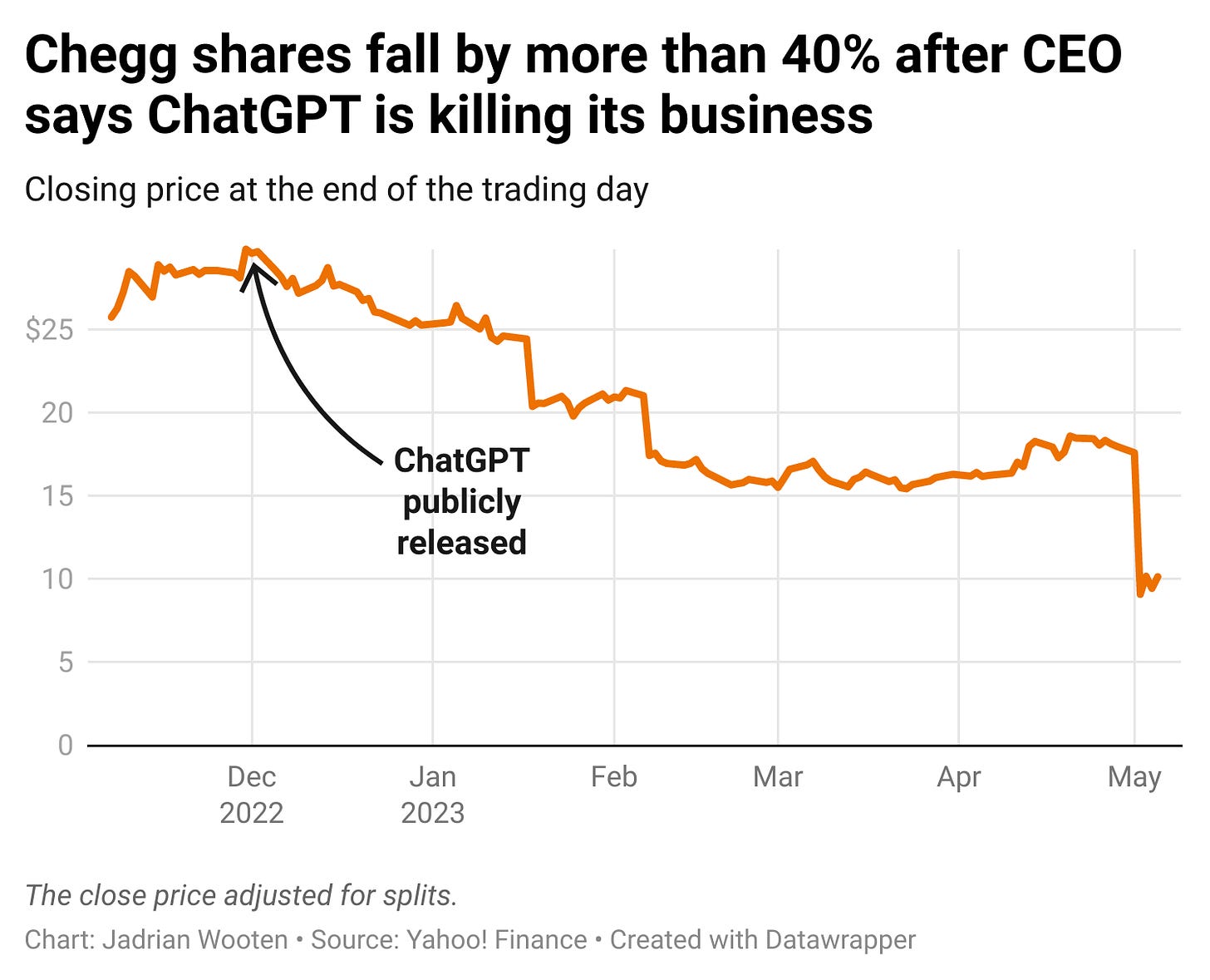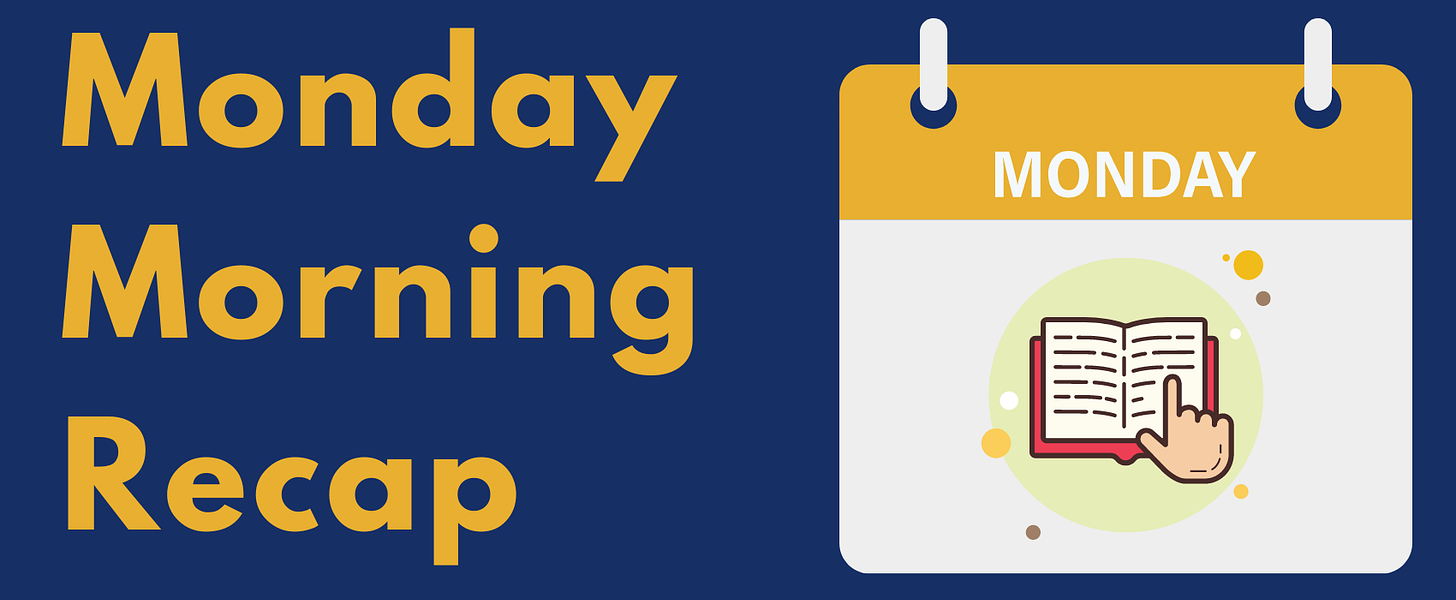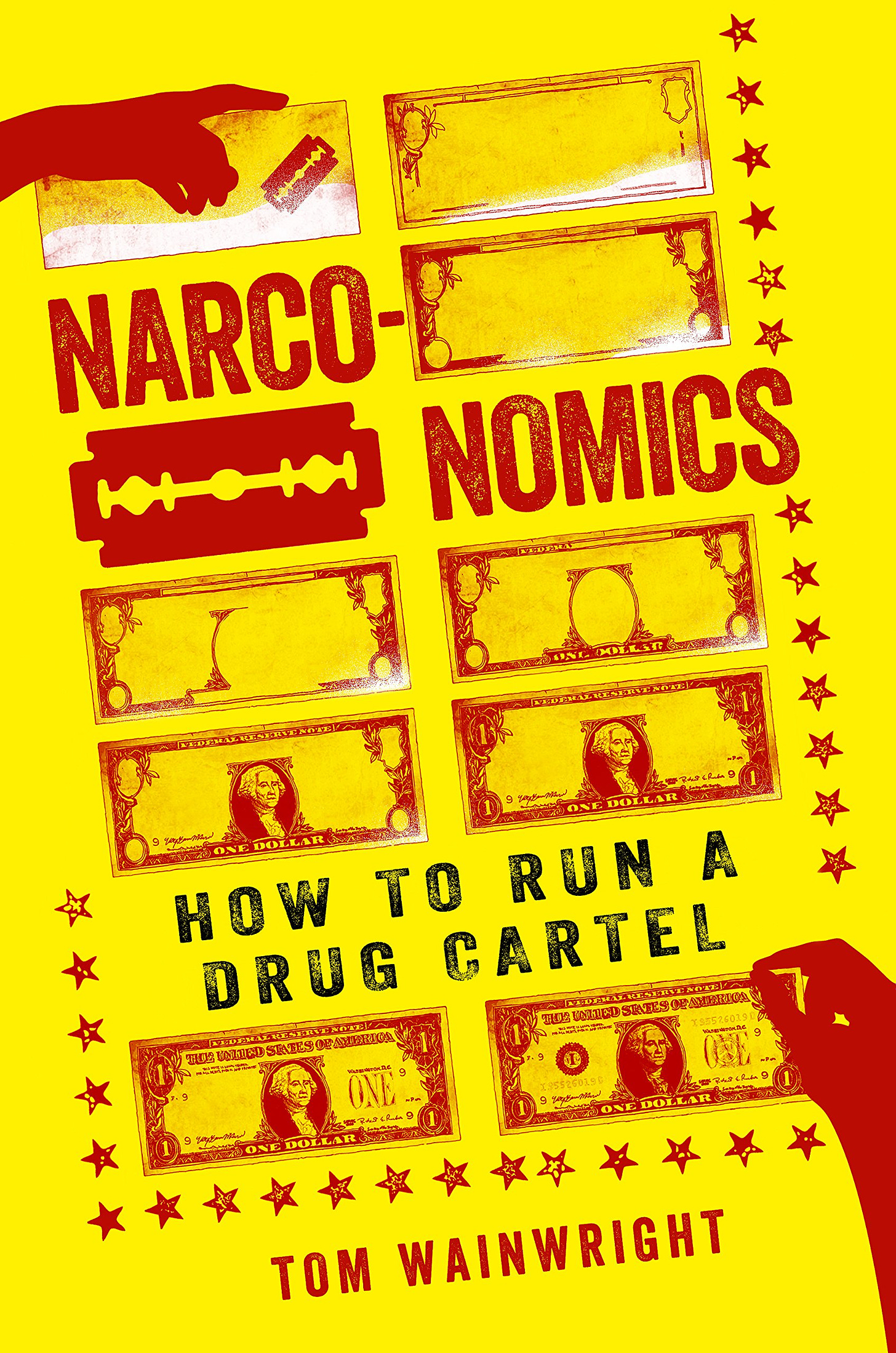
Hi y’all! Here are five stories from this week that contained some neat applications of economic principles or are related to teaching:
In 2021, the US was down more carpenters than any other homebuilding category, but why? [The Hustle | YouTube]
Chegg shares drop more than 40% after the company says ChatGPT is killing its business [CNBC]
American tourists caught smuggling 650 pounds of Fruit Roll-Ups into Israel as the country experiences dire shortage due to a TikTok craze [The Times of Israel]
As houseplants surged in popularity during the pandemic, so has the price [The Hustle]
The Italian government is calling for a crisis meeting over surging pasta prices [Fortune]
The NYPD is trying to combat the increase in car thefts, driven recently by the Kia Boyz Challenge on TikTok, by distributing 500 Apple AirTags to NYC residents. This innovative approach utilizes technology to raise the perceived cost of car theft and deter potential criminals.
Yesterday’s post focused on the rational model of crime, so it felt like I should include a crime-related book in this week’s Reading Roundup. In Narconomics: How to Run a Drug Cartel, Tom Wainwright explores the global drug trade and connects those observations back to common economic principles. Instead of looking only at the criminality of drug cartels, Wainwright instead focuses on how economic principles like market power, supply chains, and supply and demand apply to the various issues facing drug users, drug producers, and governments attempting to stop the two from interacting.
Throughout the book, the author highlights some of the unintended consequences of drug policies and raises important ethical questions by discussing the potential benefits of drug legalization, including reduced violence and increased tax revenue.







